NOVEMBER GARDENING TIPS
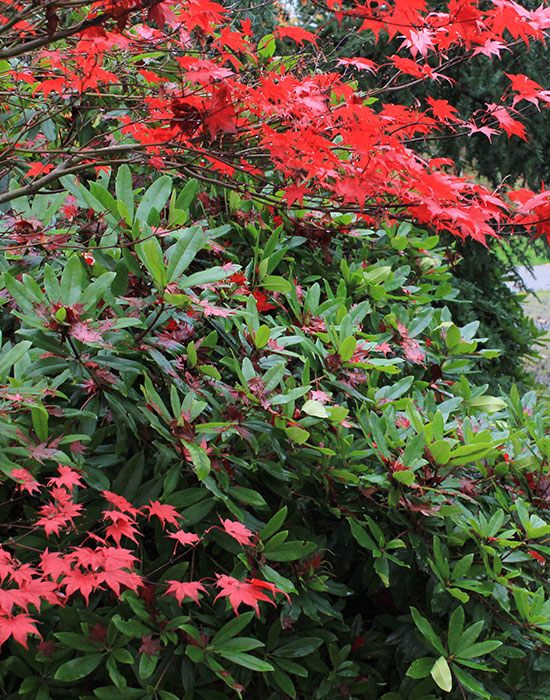
General Gardening Tips
The weather can be unpredictable this time of year, so keep an eye on it. If we have a dry spell, newly transplanted trees and shrubs may still need more water than the rain provides.
It's time to prepare for freezing temperatures. Seattle usually experiences our first frost in late November, though it can come earlier. If a hard freeze hits suddenly after a period of mild temperatures or drought, plants are especially vulnerable to damage. If you have tender plants that you'd like to protect, now is the time to move them to their winter location or put them under a protective cover. Using a thick layer of mulch and keeping your beds and containers well watered will also help protect plants during a freeze.
Remember to winterize your watering systems. Drain and store hoses, and cover outside faucets.
Fall is a great time to sharpen your tools and lawnmower blades. Protect metal tool heads against moisture with a thin coating of vegetable oil. Sand wooden handles if necessary and wipe with a protective oil like, linseed or tung oil.
Fruits & Berries
Remove fallen fruit, especially if you have had problems with insect damage. Pests that like to snack on ripe fruit move from the fruit into the soil to overwinter.
Unless you have had a major problem with fungal diseases affecting the foliage, consider leaving the leaves where they fall, since they can provide overwintering habitat for beneficial insects and help protect the roots of the tree.
If you haven't already done so, spread lime around fruit trees, strawberries, and raspberries.
If you use dormant sprays, make sure you stay on schedule to spray only at appropriate times.
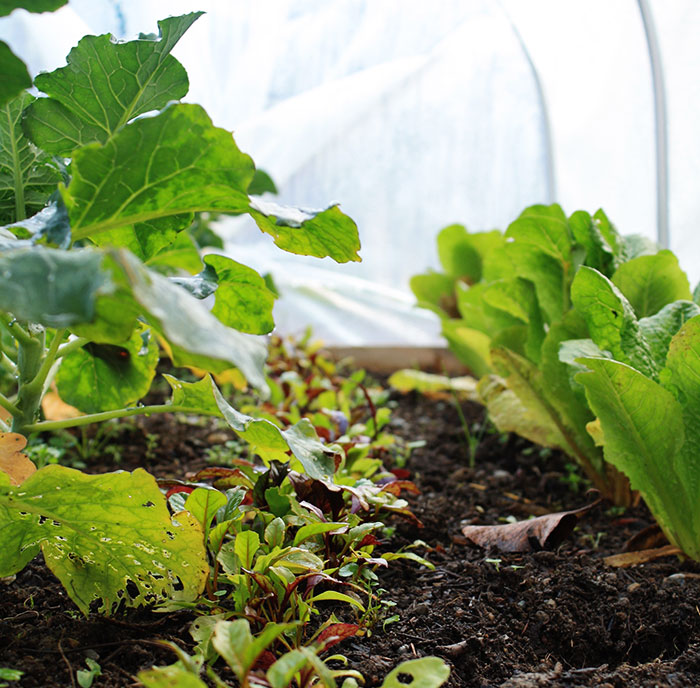
Vegetables & Herbs
Install cloches, hoop houses, cold frames or even just floating row cover over borderline-hardy vegetables such as lettuce, spinach, and root vegetables. Just a few degrees of protection can extend your harvest season dramatically. Hardy crops, like kale and Swiss chard, may not even need protection.
Unless you are already growing overwintering vegetables or cover crops, mulch any unused beds with at least two inches of mulch (leaves, straw, cardboard etc.) Heavy winter rain falling on bare soil is the biggest cause of hard, compacted soil that is difficult to work.
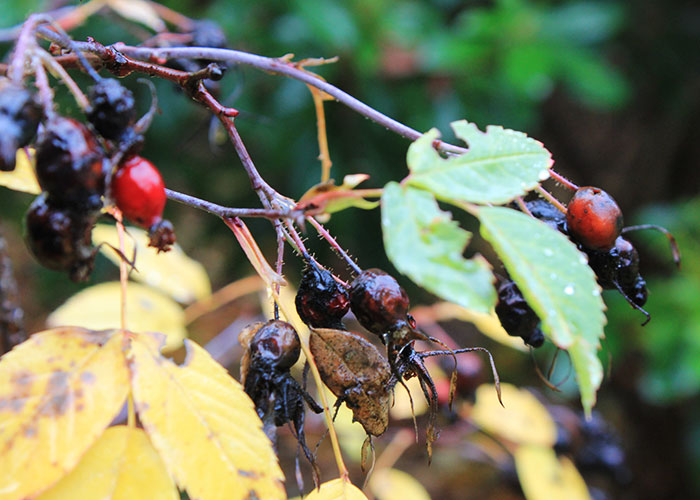
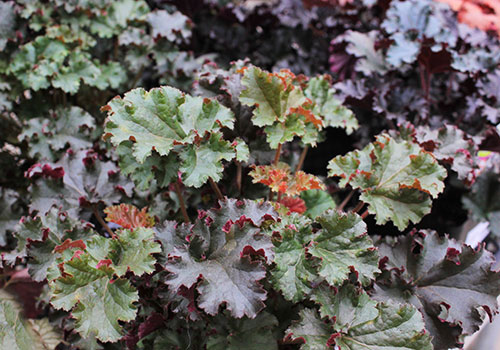
Ornamental Gardening
The long season of soaking rain is on its way. If you have containers that are open to the elements, make sure that they have good drainage.
For garden beds, the best way to protect against pounding rain is to put down a nice thick layer of mulch. Autumn leaves, straw, and bark are all excellent mulches.
If you have had problems with fungal diseases, remove affected leaves on and around deciduous shrubs to reduce the amount of spores overwintering in your garden. If your leaves are fairly disease free, leave them as mulch and as habitat for overwintering beneficial insects.
Lightly prune back your roses. The goals are to reduce them to about one third of their current height, open up the centers of the plants, and prevent damage. Cut each stem back to just above a leaflet with five leaves that opens away from the center of the plant. This is also a good time to remove any dead canes, canes that cross each other, and all canes thinner than a pencil.
As your herbaceous perennials (the ones that die back for the winter) begin to turn yellow and fade, go ahead and cut back dying or dead foliage. But leave seed heads and berries for birds to enjoy. Now is also a good time to divide your perennials to keep them healthy and abundant.
Spring bulbs, winter interest trees and shrubs, and hardy perennials can still be planted as long as the soil can be worked. Remember that planting trees, shrubs, and perennials now gives them all winter to grow their roots (and suck up the free water!) before they are subjected to next summer’s stresses.
If you want to overwinter your fall chrysanthemums, cut them back to within 6” of the ground when they finish flowering. Mulch to protect them.
Enliven your containers with plants for winter interest: pansies, cyclamen, heuchera, hellebores, hardy grasses, and more.
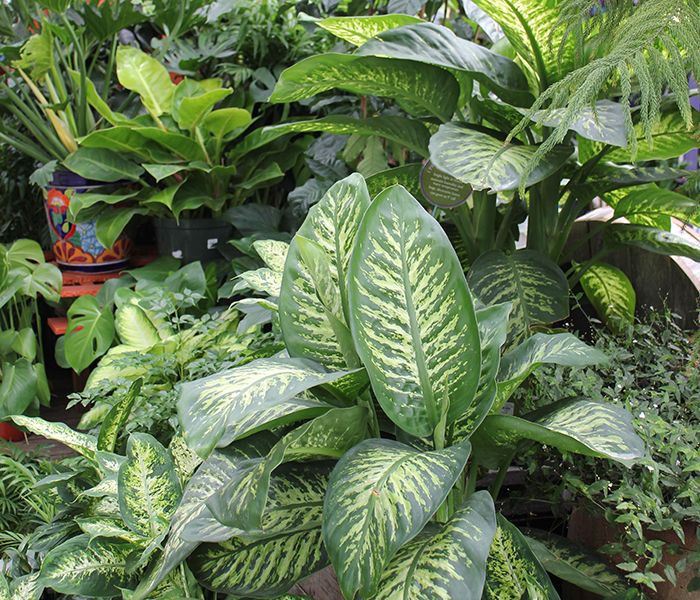
Indoor Gardening
Shorter days and lower light levels mean your indoor plants will slow their growth. Unless you are using grow lights, cut back on watering and stop feeding so that your resting plants aren't overwhelmed.
On the other hand, central heating can dry the air. Sensitive plants such as orchids may benefit from a humidity tray—which is just a water-filled tray with pebbles (or pot feet) so the plant is not sitting in water. As water naturally evaporates out of the tray, it provides a little extra humidity that can help plants cope with dry indoor conditions.
Many bulbs can be "forced" to bloom in a vase of water indoors. They may be short-lived, but they can make for beautiful holiday color and fragrance. If you'd like to see them blooming in December, now is the time to start the forcing process. We carry paperwhite, hyacinth, and amaryllis bulbs for forcing, and we can help you get started.
